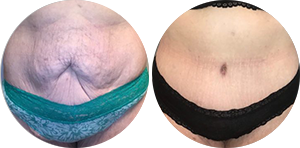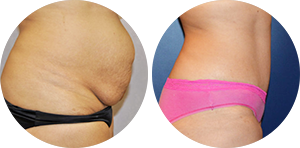Neck Lift
Offered at our convenient location in Raleigh, NC

Contents
- 1 Items To Obtain Prior To Surgery
- 2 Two Weeks Before Surgery
- 3 One Week Before Surgery
- 4 The Day Before Surgery
- 5 Day Of Surgery
- 6 After Your Surgery: The First 72 Hours
- 7 Incision And Drain Care
- 8 After Surgery What To Expect
- 9 Activities After Neck Lift Surgery
- 10 What To Call For
- 11 Emotional Exepectations Following Surgery
Items To Obtain Prior To Surgery
- Antibiotic ointment
- Antibacterial soap
- Arnica gel tabs (these are on line or available for purchase in our office if available : Arnica Montana is on Amazon 30x). This helps with discomfort, bruising and swelling after surgery.
- Stool softener to take following procedure to aid with constipation. (Colace or generic equivalent is recommended
Two Weeks Before Surgery
• Make arrangements for someone to take you to and from surgery and to be with you non-stop first 24 hours after surgery. Please have someone able to help you at least 2 times per day the next 72 hours.
- Uber, Lyft or Taxi drivers cannot pick you up following surgery.
• Complete all updated hair coloring appointments by 1 week prior to surgery. Hair coloring will not be possible until 3-4 weeks post-op.
• Do not take any products containing aspirin, ibuprofen (Advil, Motrin), non-steroidal anti-inflammatory medication or Vitamin E. Tylenol is acceptable. It is recommended to cease all herbal supplements except for multivitamins, Vitamin C, Vitamin B, iron, Calcium, Vitamin B12, Arnica, Bromelin or Tumeric.
• Refrain from all nicotine products, including cigarettes, pipe tobacco, chew or Nicotine patch. Nicotine interferes with healthy circulation and may affect the result of your surgery. It also places you at higher risk of complication when receiving anesthesia.
• Arrange a responsible driver over the age of 18 to transport to and from our office. You will be given either oral or IV sedation and cannot be permitted to drive.
- Uber, Lyft or Taxi drivers cannot pick you up following surgery.
• Please provide your preferred pharmacy information so that we can place this in our system so your medications can be sent via e-scribe.
• Your surgery is to be paid in full at this time.
One Week Before Surgery
• Do not drink alcohol for 1 week before and after surgery.
The Day Before Surgery
• You will receive a phone call informing you of your arrival time for surgery.
• DO NOT EAT OR DRINK ANYTHING AFTER MIDNIGHT unless instructed otherwise by your anesthesia provider. (This includes water and gum chewing). Surgery may be cancelled if this is not followed. The only exception is medication, which we instruct you to take with a sip of water the morning of surgery
• Pick up your medications if you have not already done so. You will need to bring these with you on your surgery day.
• Wash with dial or antibacterial soap the night before and the morning of surgery. Wash all areas that will be worked upon.
• Set Up Home Recovery Area. This may include pillows, blankets, books, television, and anything else to assist with a comfortable recovery
• Relax. Stay calm and get plenty of rest to avoid unnecessary stress
Day Of Surgery
• Wear something comfortable and easy to get on and off such as button up shirt and PJ’s or sweats.
• Bring ALL of your medications with you to the center.
• Leave jewelry and valuables at home. Do not wear jewelry the day of your procedure.
After Your Surgery: The First 72 Hours
• Most necklift patients have only mild pain or the feeling of tightness in their face or neck. Pain medications will be prescribed for you to take for the first week following your procedure.
• Your care giver should check the neck every 1-2 hours until bed time and once the first night to make sure there is no dramatic increase in swelling that may indicate a hematoma or bleeding under the skin (ie golfball or larger area of swelling). Should this major swelling occur call your surgeon immediately or go the emergency room. This is rare. Bruising and mild swelling that is symmetric in nature are normal.
• Small drops of blood and oozing from the incisions are very common the first 24 hours. Commonly there is a drop or two every 1-2 hours along some portions of the incision line. This is normal.
• You should get up and walk every 1-2 hours for the 16 hours you are not sleeping. You should also take deep breaths to open up the lungs on the same interval (hence our expression “walk and breathe every hour”).
• If your drive home is over 90 minutes, we recommend stopping every hour for a quick walk at available rest stops or gas stations.
• Make sure you stay hydrated following your surgery. Drink plenty of fluids when you get home. When you are hungry, you may eat any food you like, but would recommend small portions initially. Smoothies or soups are ideal the first night home.
• Starting the day of surgery, Sleep with your head elevated the first 72 hours.
• Avoid neck flexion as much as possible, keep your chin up! That means having books and computers at eye level. This should continue the first 4 weeks after surgery
• Mild temperature elevation is very common the first 72 hours after surgery (99-100 degrees F) and is normal. Most temperature elevations respond to walking and doing the breathing exercises. Call for any temperature elevation over 101 that lasts more than 8 hours and does not respond to walking and deep breathing exercises.
• Resume all prescription medications, especially blood pressure medications the night of surgery but certainly no later than the next morning.
Incision And Drain Care
• If you have dressings on the face after your facelift, check with your surgical team about when and if you are to remove the dressings.
• If you do not have dressings in place, you may get in the shower and get all incisions and your hair wet in a shower the day after surgery. We recommend a mild soap such as Johnson’s baby shampoo. You may shampoo the hair around the drain sites, just be gentle around the tubes and the incisions. After drying off the hair, apply antibiotic ointment to all incisions. It commonly takes several shampoos to get all the dried blood out of the hair: this is normal.
• If using a hair dryer after surgery, do not use the hot or warm setting in that burns may occur due to the skin being numb. Use the cool setting only.
• If you have drainage tubes, you will be instructed on caring for them prior to your discharge. The drain tubes are often best managed in the shower by putting the drain bulbs on a lanyard or string around the neck, hence leaving both hands free in the shower.
• Drain tubes are commonly removed at the first post op visit and if any external sutures or staples are present, they are removed at either the first or second visit.
After Surgery What To Expect
• Maximum swelling after the surgery is usually 24-48 hours after the surgery. Bruising will commonly worsen over the first week before improving. The majority of swelling and bruising is improved by two weeks post op, but some subtle swelling, especially under the chin and jawline, can last 6 months. This is normal.
• The first week after face lift surgery is always a challenge. With the normal swelling, bruising and discoloration, everyone looks far worse than they did before surgery. We tell our patients to prepare their family and care givers to expect you to look like you “lost in a boxing match” or were in a motor vehicle accident. Unfortunately, this is no way around this stage if you are going to have long-lasting results.
• Normally you are presentable to strangers at a grocery store, perhaps with a scarf or a hat, at two weeks post op. To be presentable to co-workers normally requires 4 weeks. To stand up to scrutiny at a party with a nosy friend takes a minimum of 6-8 weeks.
• Our patients are normally ecstatic with their long-term results and feel this surgery was one of the best decisions they have made. However, it is normal to feel a little down or depressed the first week or two after the procedure due to many factors such as the effects of a long anesthetic, the need for medications, the restriction from normal activities and being anxious that you will eventually have an acceptable appearance. Mood rapidly improves once the results are apparent and normal activities resume at 4-6 weeks post-op. Please let your surgeon know if your feelings of depression are severe or incapacitating; this is rare but there are many excellent treatment options.
• Make-up can be applied once the area is healed. Depending on the area and procedure, this is commonly acceptable at 2 weeks post-op. Do not apply make-up to any raw or open areas or to an area with an eschar (scab). If you have a question about when exactly you can start, check with your surgeon.
• Hair styling with simple shampoo and blow drying with cool air can occur within days of surgery. Hair coloring normally needs to wait until all incisions have been healed without drainage for a minimum of one week. This point is commonly not reached until 4 weeks post-op.
Activities After Neck Lift Surgery
• Walking every hour or two needs to start when you get home from surgery.
• Longer walks outside the home or on a treadmill are acceptable after the drains (if you have drains in place) are removed.
• Avoid heavy lifting (over 20 pounds), bending over, heavy aerobics, weight lifting, and sexual activity for at least 10-14 days after surgery. You may gradually take on those more vigorous activities after 10 days post-op but check with your surgeon if you have concerns.
• Traveling by airplane is best to be avoided until after the drains have been removed at the first post op visit. After that point, air travel is normally permissible so long as you are careful to avoid heavy luggage lifting until over 10-14 days from surgery. Traveling by car is acceptable immediately after surgery, but long car rides must be broken up every hour for short walks.
What To Call For
• Significant neck swelling, especially over the size of a golf ball.
• Nausea and vomiting that persists after 24 hours from surgery.
• Persistent fever over 101 degrees that does not respond to walking and breathing exercises.
• Any severe or increased pain not resolved with the pain medication.
• Significant bleeding from the incisions that does not respond to 10 minutes of direct but gentle pressure.
• Any increased redness around the incision (a few millimeters of redness around the incision is normal however).
• Any foul odor from the drainage.
Emotional Exepectations Following Surgery
It is not unusual for patients to undergo significant emotional “ups and downs” after any type of surgery. Factors such as underlying stress, medications, and/or psychological tendencies can result in patients experiencing a “post-operative depression” that generally resolves after a few weeks. Having a partner, family member, or friend who is supportive can help with this process. Understanding the stages of emotional “ups and downs” can help patients stay calm and recover from this emotional process faster:
Phase 1: Being Out of It: Swelling and discomfort is most severe over the first few days after surgery. Pain medications also can make you disoriented and emotional.
Phase 2: Mood Swings: Having just had surgery, patients are adjusting to a sudden change in their appearance with much anticipation. The presence of bruising, swelling, and asymmetries will distort a patient’s results thereby concealing the final outcome. Mood swings (especially sadness), worry and depression are common emotions as a result. Patients may even ask, “What have I done?” or think that “I never should have done it.”
Phase 3: Being over critical: During the second week, patients will probably be feeling a lot better. The swelling and muscle cramping/spasms will be decreasing and sutures will be out. Because of anticipation, it is natural for patients to look critically at their new body worrying about symmetry, scars, and so on. At this point, it’s normal to wonder if they have achieved their goal and what they paid for. This is too soon to tell and most concerns are resolved with time.
Phase 4: Happy at last § Finally, about 3 – 6 months out of surgery, patients will probably start liking how they look and are feeling much better


